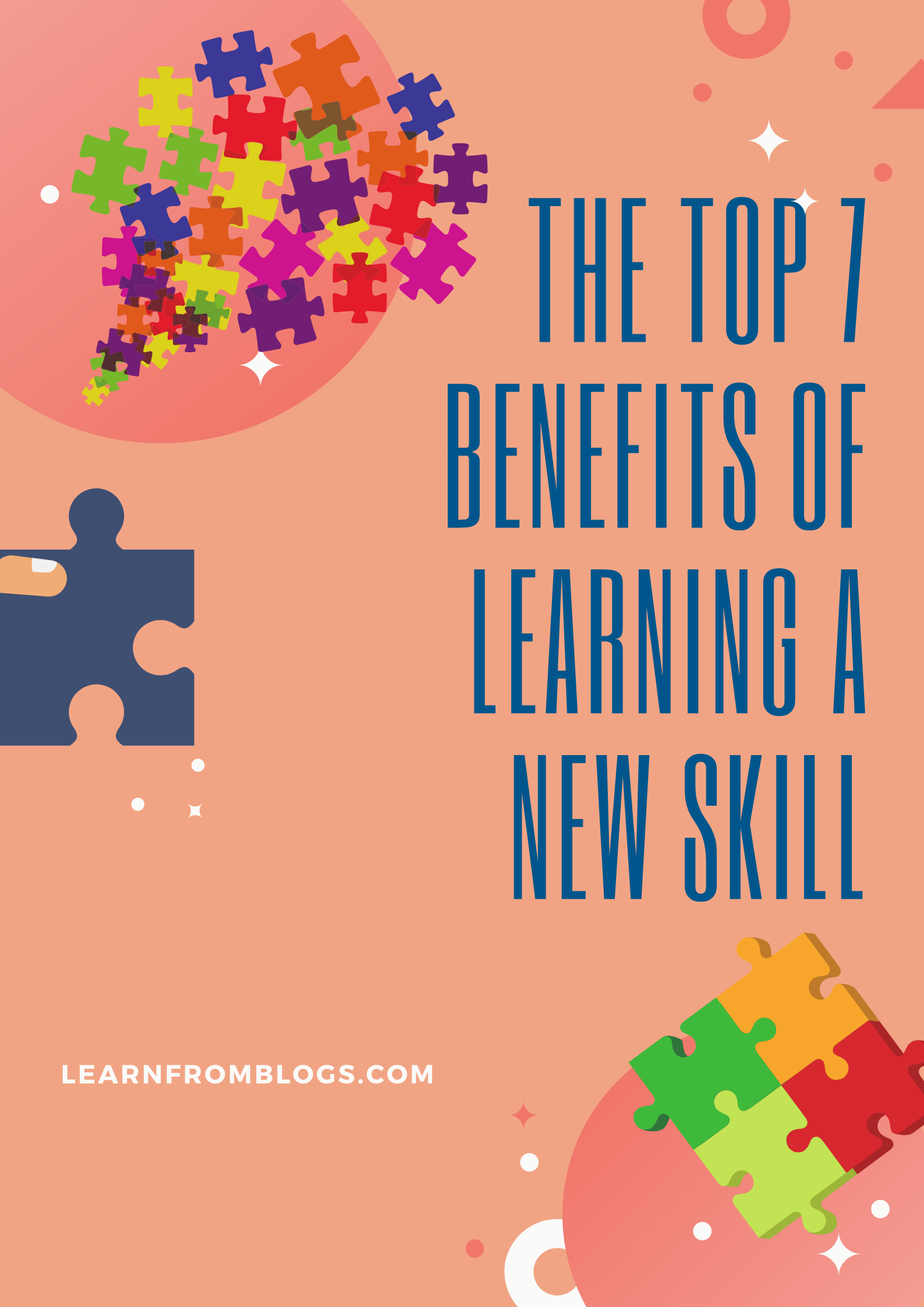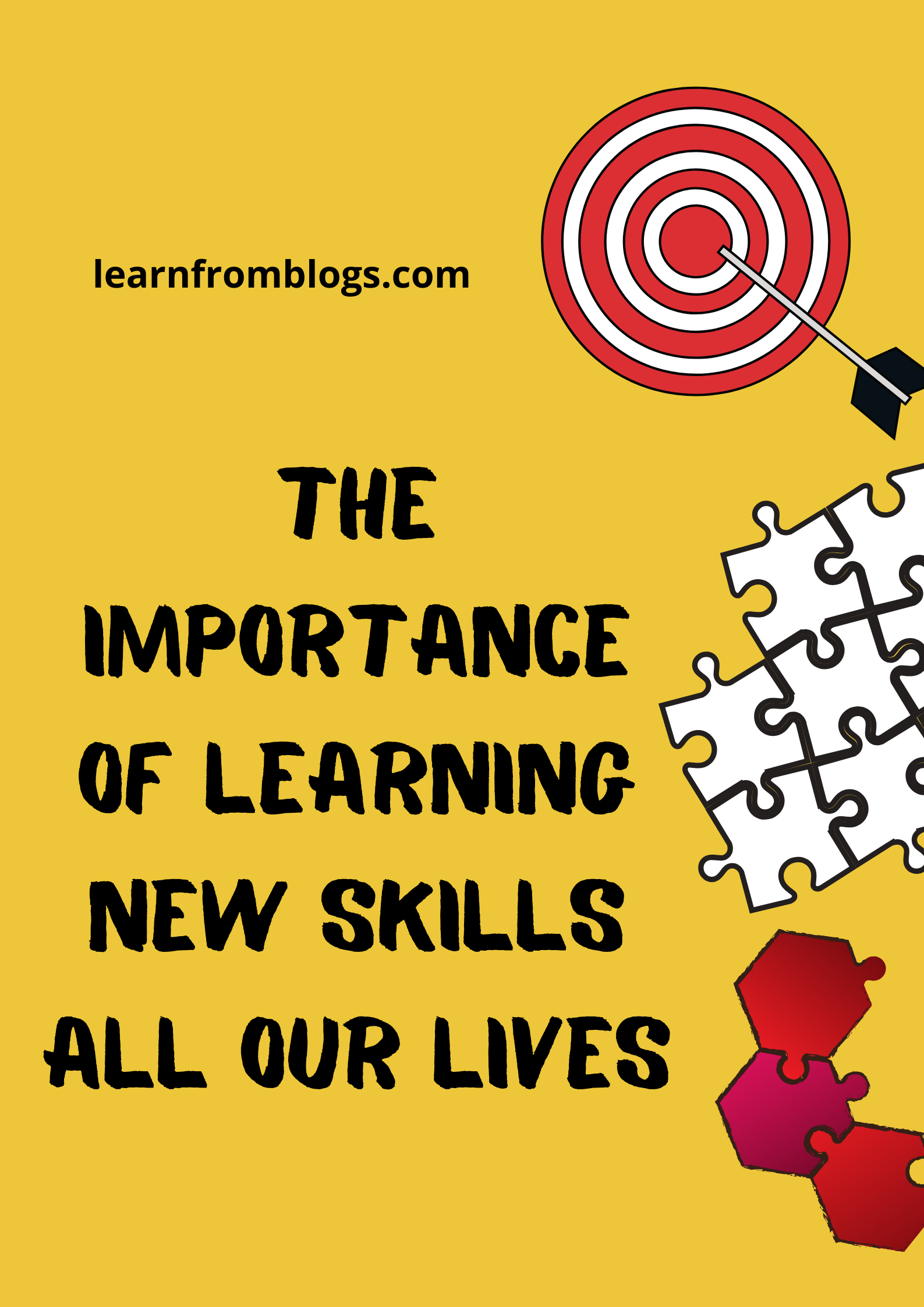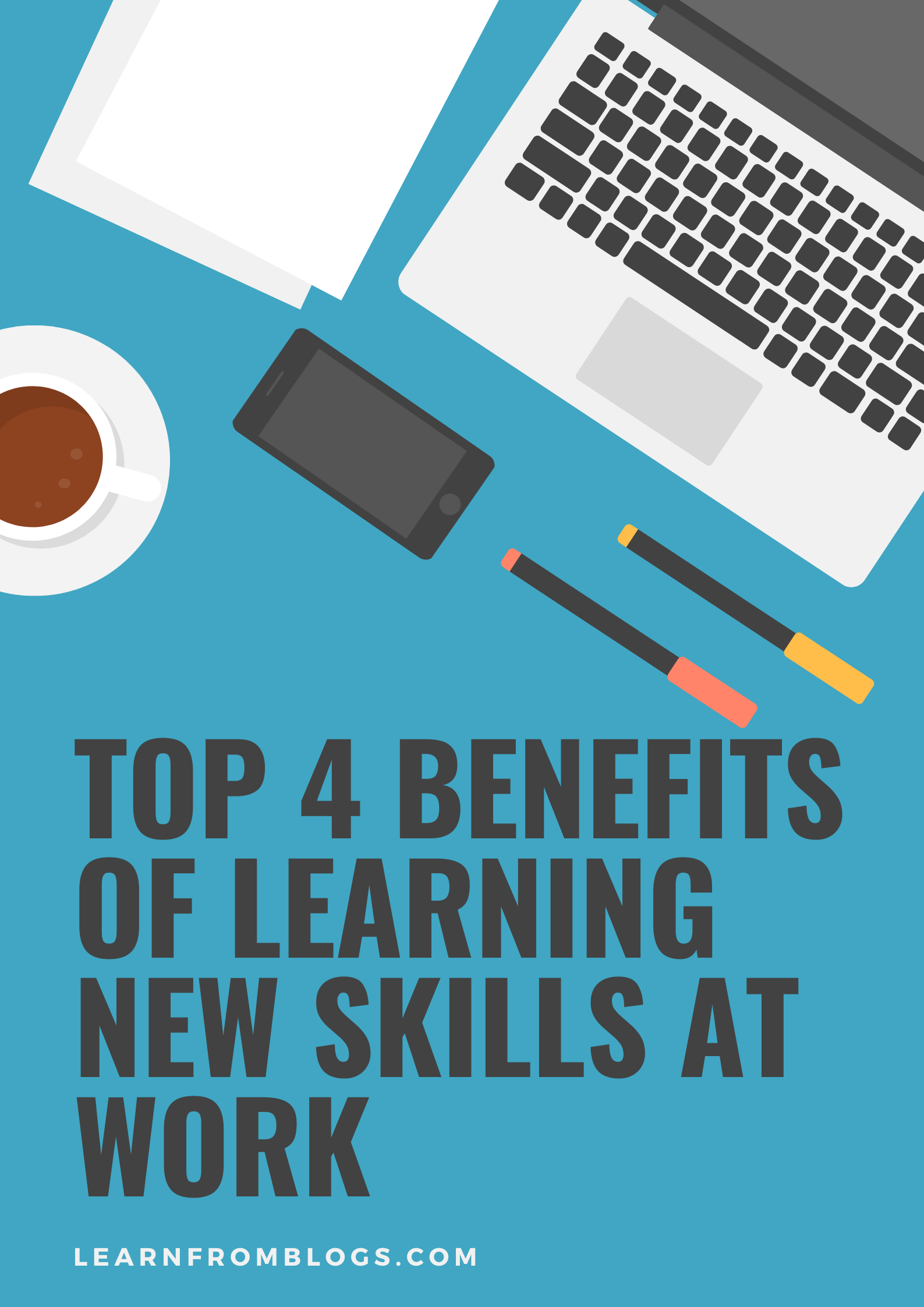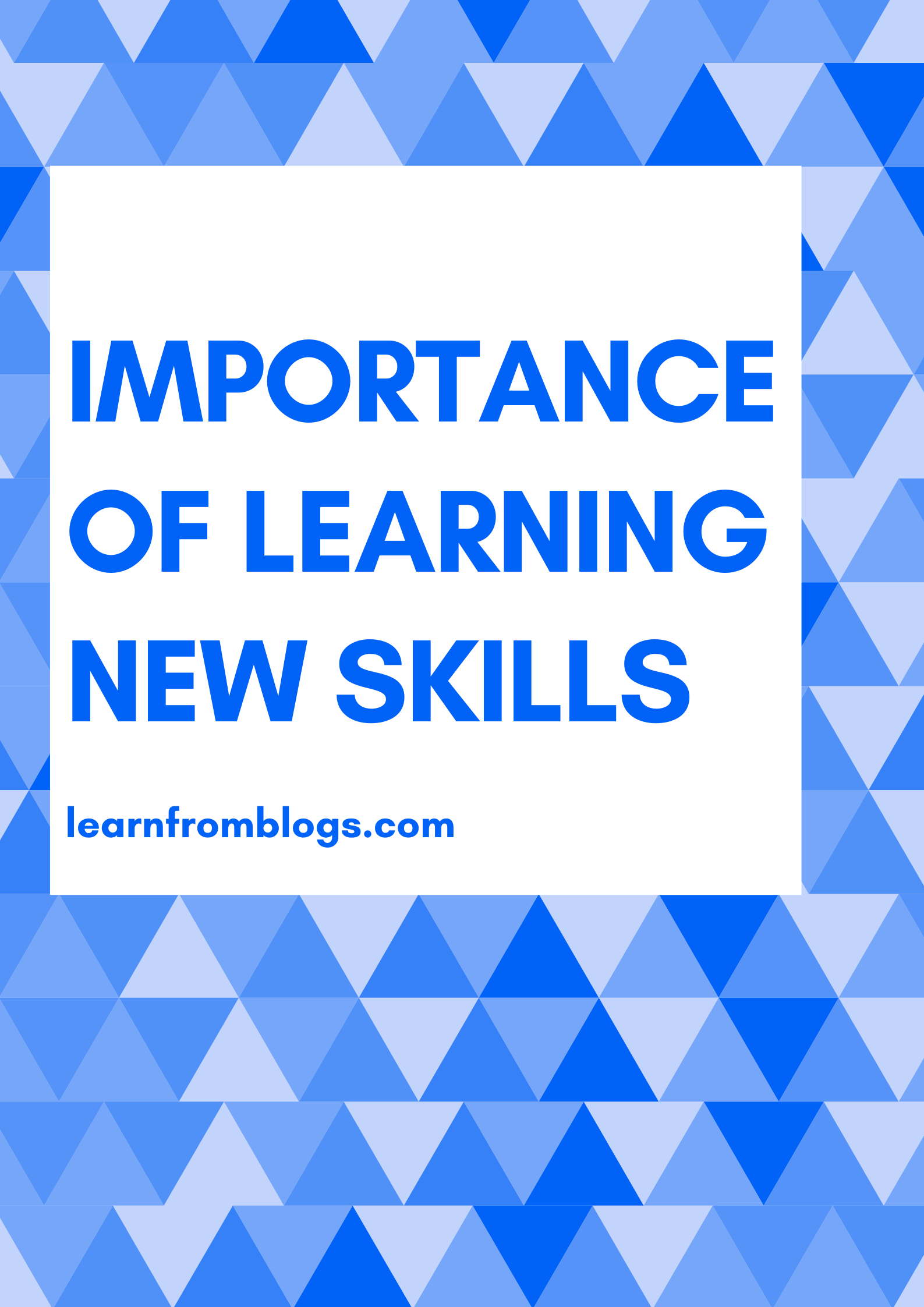
I have asked at least ten students from different levels why they want to succeed in their studies. Most answered that it was the pressing globalization and the kind of working system that strives them to succeed. Gone were the days of compliant and obedient workers, so they must be aggressive to push themselves to advance in knowledge and skills.
So I followed my question with what inspires them to study hard. And here are the six summarized factors that drive them to success.
1. Disposition and Commitment. Pursuing success is like entering a battlefield. You must be ready and committed to surpassing the struggle; hence your motivation must not stop on a single victory or defeat.
2. Perseverance. Don't quit easily. Either you lose now or be victorious forever.
3. Strong willpower. Restrain yourself from distractions and resolve the obstacle with firmness.
4. Engagement. Engage yourself in any active and experiential learning to increase your motivation and focus.
5. Powerhouse. Strive to lead an organization to influence people as you lay the groundwork of your future in leadership. However, manage your time properly as success is achieved after careful planning.
6. Lastly, have faith in yourself. You can. You will.

Gaining skills is one of the most important things you can do to develop your work. It is the ability to do something well. A well-developed skill can make us master in a particular field, and it can be learned too.
Learning new skills helps in your professional life a lot. It helps you to achieve your goals, gives confidence, and gives you motivation for working too. Practicing your existing skills and makes you professional in your work-place. Not only learning new skills is necessary, but also practicing your existing skill is.
Learning new skills is like bringing up a baby; it is connected to growth. Along with this, it is very important if you want to grow in business as it is prosperous and fruitful.
IMPORTANCE OF SKILLS ARE GIVEN BELOW:
1. ACHIEVING YOUR GOALS
2. SELF-CONFIDENT SUCCESSFUL IN CAREER
3. TO BECOME A LEADER
4. INVENT AND CREATE NEW THINGS
5. JOB AND PROMOTION
6. YOU WILL BE ABLE TO GROW YOUR INCOME
Learning new skills means you can do more work or can invest in many works. Henceforth this benefits you in earning more than you would. This helps with your income in your workplace.
The benefits of learning new skills at work:
I) SECURING YOUR JOB
Losing your job will never be an issue for you. Your administration or boss will be impressed by you because of bringing newness to the company or workplace.
Henceforth, there will be no chance of losing your job, and you can invest in it peacefully.
II) PROVIDING A GOOD WORKPLACE
When you are master in adapting new skills, there will be so many proposals for work. Then you can choose which work is best for you.
III) INCREASE OF KNOWLEDGE
The increase in knowledge is a great benefit of learning new skills at work. It gives you a new sense through which you can judge. This is the activity or process of gaining skills by studying, practicing, being taught, or experiencing.
IV) GROUPING BENEFIT
Whether it is selecting a new project or grouping, your co-workers will want you in their team. They will give you the utmost importance. It will never happen that you won’t be any group of forming an assignment or project. It may also happen that people will select you as a leader or an inspiration.

For many of us, our works offer us a great way of learning and improvement. Your learning process gives you motivation and encouragement. When you look back before gaining the knowledge, you will realize the fact that how much you have learned.
But for those of us who feel as though our works aren’t guiding us to anything, the lack of progress can make us feel demotivated and sad.
Following are the benefits of learning new skills at work:
I) SECURING YOUR JOB
II) PROVIDING A GOOD WORKPLACE
III) INCREASE OF KNOWLEDGE
IV) GROUPING BENEFIT
V) INCREASING SELF-CONFIDENCE
Professional life’s success also depends on learning new skills. People will hear your ideas with more concern, and with that, you will be able to expand your connections.
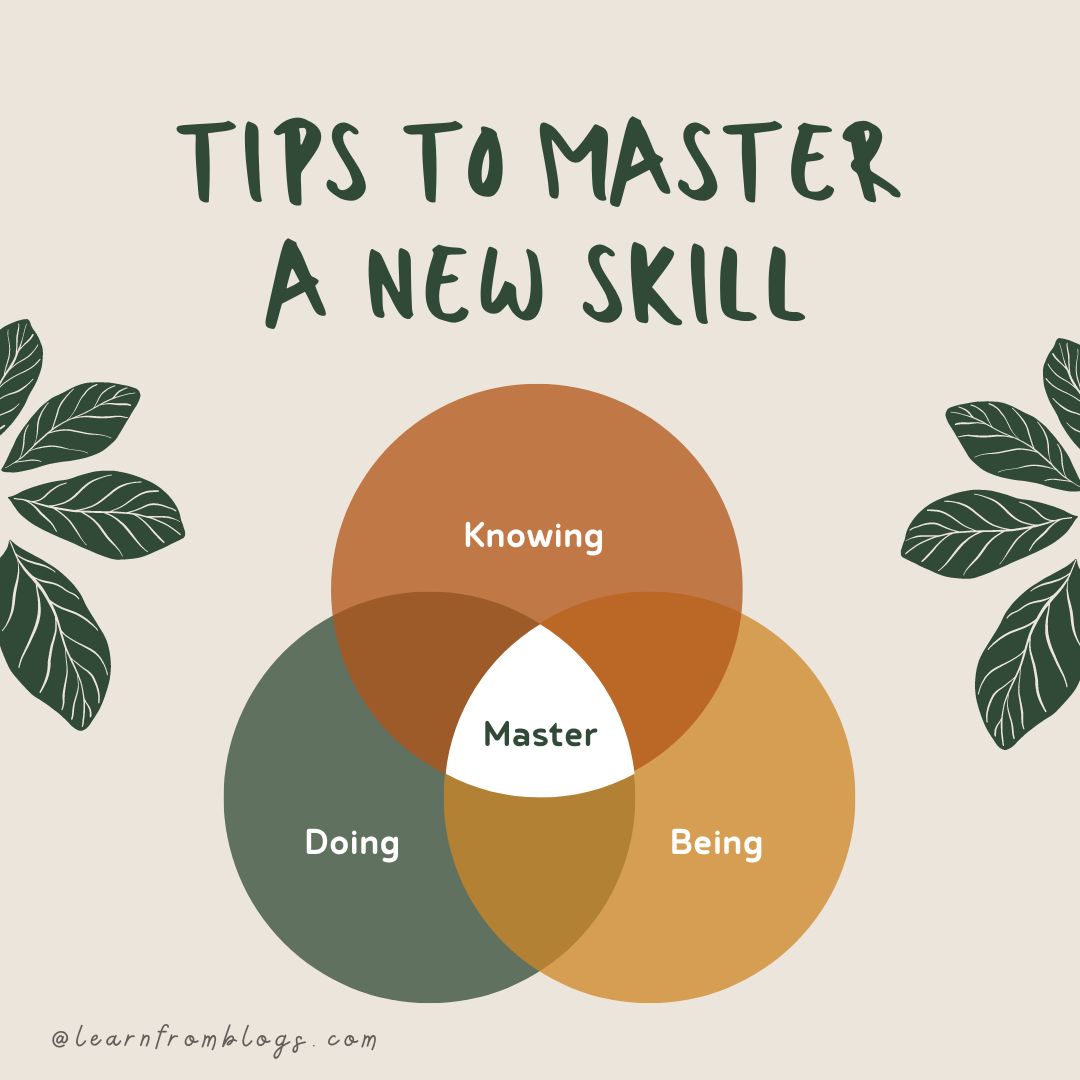
THE GAIN IN BRAINSTORMING TOPICS
It is a situation where a team of people meets to introduce new ideas and solutions around a specific concern or interest by reducing inhibitions. All the ideas and thoughts are marked down, and those ideas are not criticized, and after brainstorming sessions, the ideas are appraised. In your brainstorming sessions, you will be able to give you the best. And there you will be praised by others too.
PRESENTING IDEAS
People will hear your ideas with more concern, and with that, you will be able to expand your connections and.
1.) NEW EXPERIENCE
Experiences come along when you try new things. Sticking to the same thing won’t bring you new experiences. Henceforth, it is necessary to learn new skills at work to get new experiences.
2.) ADMINISTRATION’S TRUST
When it is known to everyone in your workplace that you are gaining new skills in addition to that, the administration will trust you and will give you new works to try.
3.) CO-WORKERS INTEREST
As you are adapting new skills, you are on everyone’s priority list. They will also want to adopt new skills. They will discuss your skills and process of adapting skills. Along with that, they will show interest in your work.
4.) PROMOTION
For many people, it is so hard to get a promotion in their work. You can give it a try by adapting new skills. Definitely, your boss or administration will be impressed by this. Along with that, you can invest more now. Consequently, you will get a promotion.

Life is all about learning new things. In addition to that, professional life’s success also depends on learning new skills. Adapting new skills in professional life gives you a sense of accomplishment. Along with you, know your worth and the works you can do.
Your new opportunities are created, it makes you feel important, it motivates you.
You can improve yourself for the better. It also gives you access to new and different chances. You can develop yourself, and that is growth.
Importance of learning new skills at work:
1.) NEW EXPERIENCE
2.) ADMINISTRATION’S TRUST
3.) CO-WORKERS INTEREST
4.) PROMOTION
5.) THE GAIN IN BRAINSTORMING TOPICS
6.) PRESENTING IDEAS
Learning never stops in human life, so why should it in your professional life?
Keep learning new skills as it will help in your work-life. Adapting new skills in professional life gives you a sense of accomplishment. Along with you, know your worth and the works you can do.
ACHIEVING NEW GOALS
You can achieve new goals and also can make new goals. Learning new skills gives you a sense of newness. You can invest in any unknown thing with your new skills.
ATTRACTS OTHERS
Let’s be real when you see something new you want to know more about that. The same happens in our professional or work life. When your co-workers, boss sees a change in your skill, they will prioritize you, or even you as a boss, clients, and proposals will be sent to you.
For example- If you are a professional photographer, but you don’t know how to edit on condition that you can learn a new skill of editing, which will attract others.
1. SENSE OF ACHIEVEMENT
When you are learning new skills, you can adapt yourself to any situation. This gives you a sense of accomplishment. Along with you, know your worth and the works you can do.
Your new opportunities are created, it makes you feel important, it motivates you.
2. GROWTH
Not only in professional life but also as a human being, you can grow by adopting new skills. You can improve yourself for the better. It also gives you access to new and different chances. You can develop yourself, and that is growth.
3. FINANCIAL GAIN
Learning new skills means you can do more work or can invest in many works. Henceforth this benefits you in earning more than you would. This helps with your income in your workplace.
4. LEARNING SPEED INCREASES
When you learn one new skill, you will feel much more accomplished. And you feel interested in learning other new skills as you know, learning new skills benefits you a lot.
5. GIVES CREATIVE IDEAS
Skills give you advancement. Through learning new skills, you get creative and new ideas. You can solve any laborious work with your creative ideas.
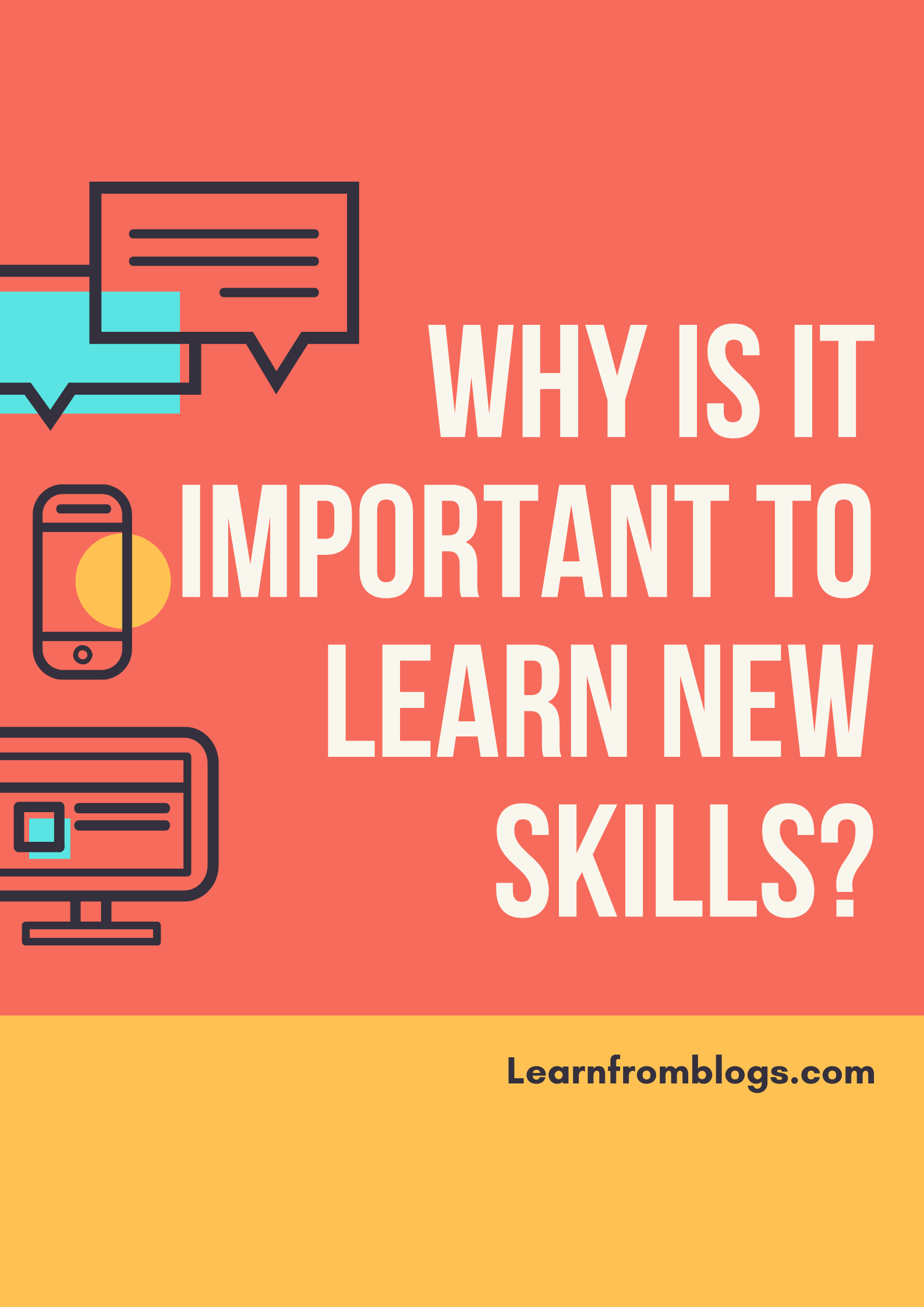
The world is always changing and developing henceforth there are discoveries almost every day in industries and the way people are living. Without conversion, employees or professionals can be left behind.
For instance, the impact the virtual life and social media have had on communication in recent years. Sending letters from one place to another is not in trend. This type of ultimate change can greatly impact how its customers and workers view a business.
Following are the importance of learning new skills
1.SENSE OF ACHIEVEMENT
2. GROWTH
3. FINANCIAL GAIN
4. LEARNING SPEED INCREASES
5. GIVES CREATIVE IDEAS
6. ACHIEVING NEW GOALS
7. ATTRACTS OTHERS
Learning skills make you a new person in every other way. If you fail in any work, try to adopt some skills that are related to that work, it will give you an advantage.
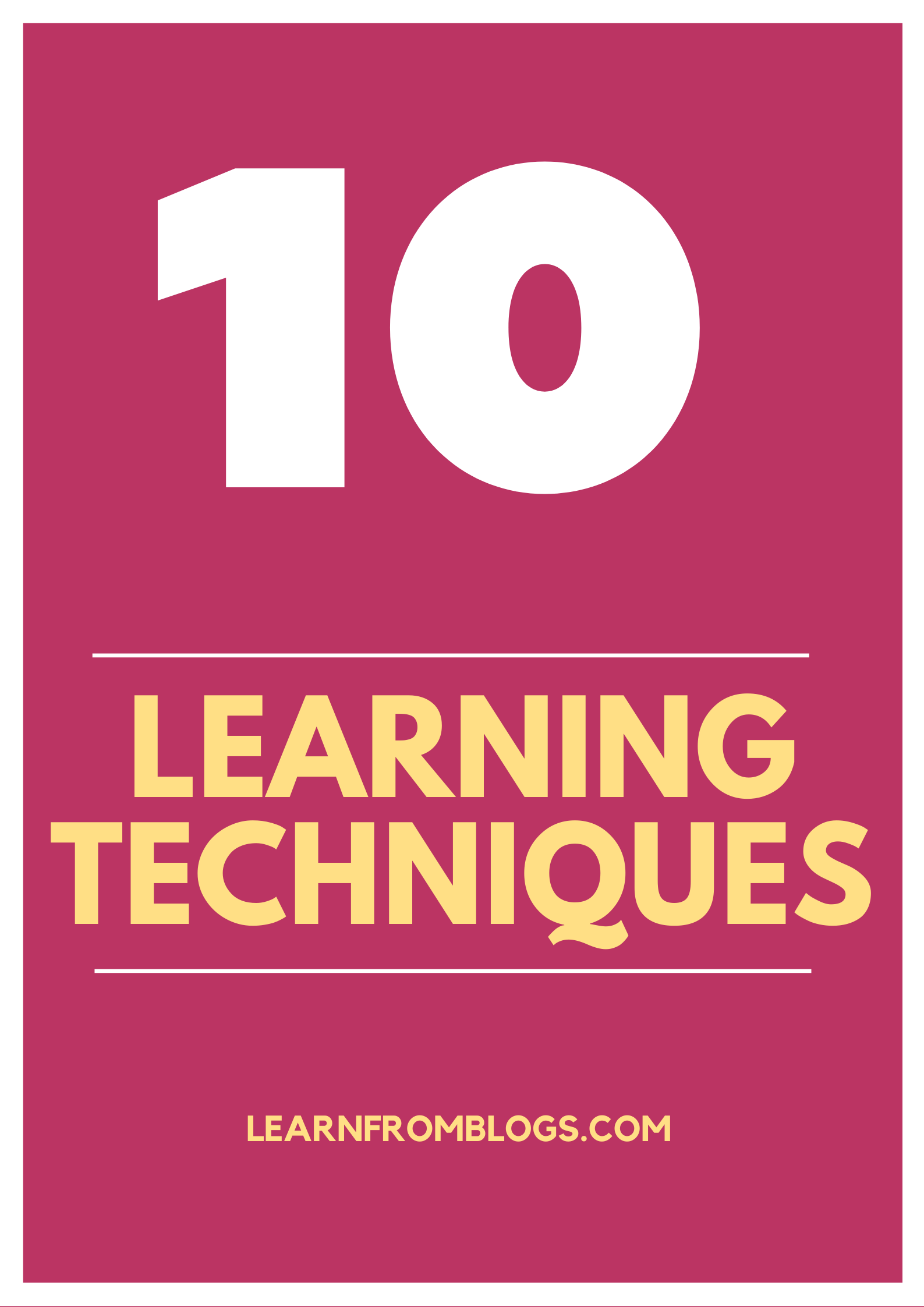
Whether out of habit or by conscious choice, we all make use of various learning techniques when we attempt to store new information in our long term memory. But not all study habits are created equal; some may be more efficient than others, especially when you factor in the amount of time it takes to implement each one.
Researchers have recently characterized 10 learning techniques according to whether they provide high, moderate, or low utility, based on each technique’s relative efficacy, ease of use, and applicability to a broad range of learning situations.
1. Practice testing
Using practice tests to review information
2. Distributed practice
Spreading out study sessions over time
3. Elaborative interrogation
Asking your self "why" as you read
4. Self-explanation
Generating reasons to explain new information
5. Interleaved practice
Trying out different types of problems when you practice
6. Summarization
Summarizing lengthy information
7. Keyword mnemonics
Associating new words with similar-sounding words
8. Visualizing
Generating mental images while you read
9. Highlighting and underlining
Emphasizing key points in the text
10. Rereading
Reviewing information multiple times

The group discussion can go wrong, if too many questions are being asked or if the self-question and answer carry the discussion. Also, if the answers fail to probe or explore the concept, the discussion will not achieve the required purpose. The unrelated questions or too many yes/no questions can also deviate the discussion away from the goal that will make it lose the purpose of carrying the discussion.
The discussion is most fruitful when carried with the focus. The appropriate conclusion and maintaining the right track throughout the discussion is the best group discussion for the students to learn from. If the instructor finds some lulls during the discussion, the instructor can intervene and introduce the new question, to keep moving the discussion on the right track.
Before, concluding the discussion, the instructor shall have a summarizing session. The instructor can either assign the task to the individual student or ask individually to each student to write down the summary or important ‘take-away’ points.
Learn more about 8 advantages of group discussion in the learning process. Enhance your collaborative skills and deepen your understanding.

Group Discussion is the most effective strategy used to increase learning. It is easy to use, straightforward and often observed accomplishing the learning goals. It is the most valued approach for imparting knowledge and generating opinions among the students.
1. Explore different perspectives
2. Discussion leads to subject exploration
3. Active participation
4. The discussion makes the student comfortable with the complexity and ambiguity
5. Helps in the development of critical thinking
6. Social and communication skill development
7. Encourage the development of democratic habit among the students
8. Discussion in the group involves, articulation of an argument and counter-argument
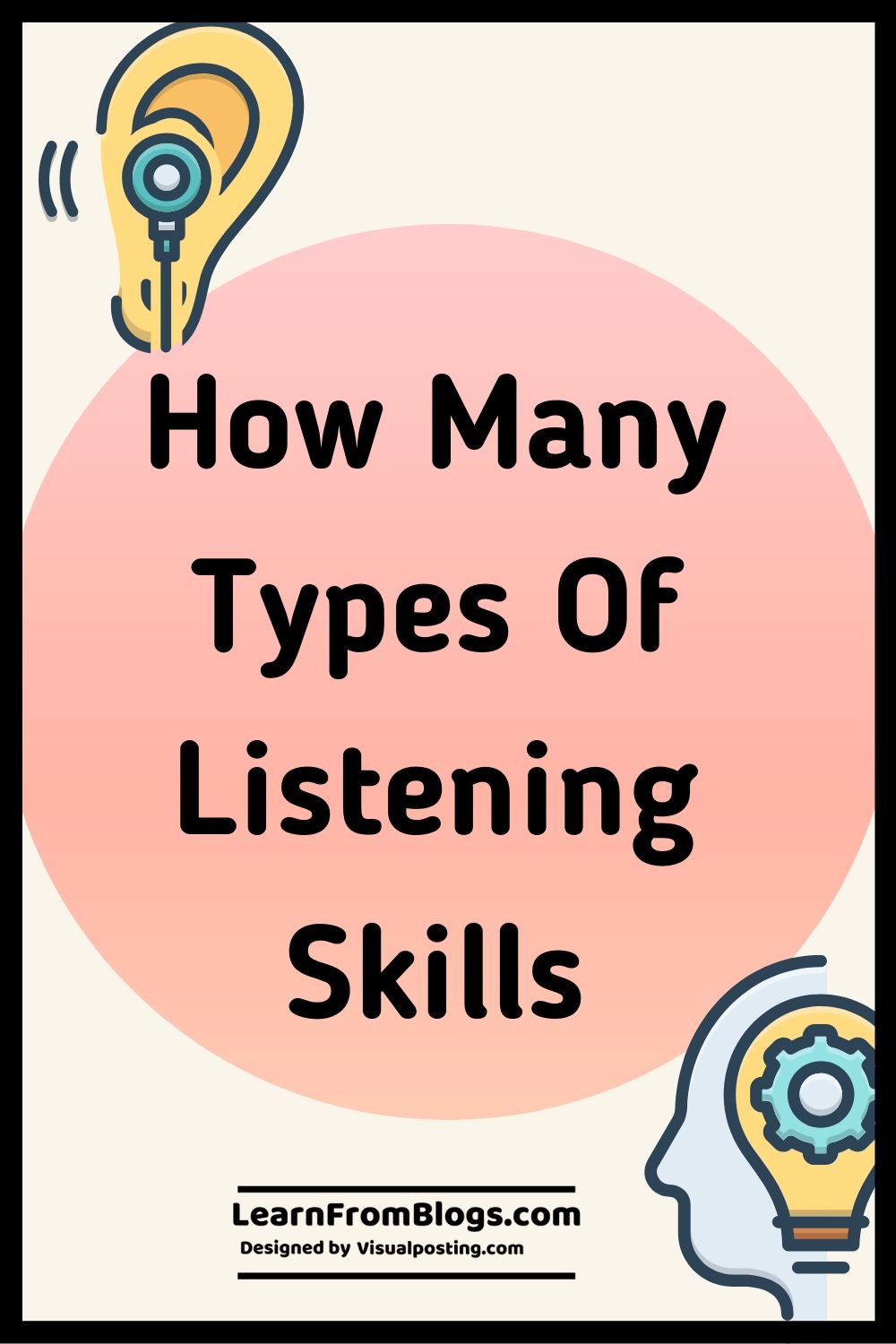
Basically, there are two types of listening skills:
Discriminative listening
This type of listening is developed in the initial stages. This is the most basic kind of listening and does not require any effort as such in understanding the meaning of words or the phrases but just different sounds are produced.
For example, in early childhood, a distinction can be made between different sounds that get improved as the child grows up. As we move from childhood towards adulthood this distinction increases with the capacity to distinguish between different sounds.
Comprehensive Listening
Comprehensive listening is a broad term and it basically includes understanding the messages being communicated to the other person. It is also fundamental to all listening sub-categories.
For a person to develop comprehensive listening the listener first has to have an appropriate vocabulary and other language skills. This kind of listening gets more complex as the same message given to two people might result in understanding it with different meanings.
Comprehensive listening is also complimented by sub-messages through non-verbal communication like the tone of the voice, body language, and gestures. This kind of non-verbal signals can help immensely in communication and comprehension but might also confuse and might lead to misunderstanding.
Your timetable should reflect your learning style. There are five different types of learning styles - they are:
- Visual learner – Learning by looking at a picture
- Aural learner- having an ear to the ground and picking up information by listening.
- Verbal learner- Learning by reading and writing
- Physical learner – learning by the physical presence
- Logical learner – learning by rationalizing
Find your learning style and according to that build your timetable.
You may even be a solitary learner or social learner. If you are a social learner, develop your timetable around group discussions.
Here are 10 ways to improve your exam performance by making learning a fun activity
1.) Sometimes studying while music plays in the background is a great idea.
2.) Drawing diagrams, figures, or doodles while making notes would increase your interest in going back to them for revision.
3.) Roleplay is one way to enjoy studying literature.
4.) Turn your course content into puzzles, flashcards, or quizzes.
5.) Get your friends along to join the fun.
6.) Use interesting stationery to add zing to your learning.
7.) Give yourself tiny challenges.
8.) Make a chapter into a nice story or a comic. Comics never fail in most cases.
9.) A change in location is what the doctor ordered if you feel sleepy on your study table.
10.) Finally, you can try to combine your study with other activities such as sports, socializing, pursuing your hobby, or just taking a rest.

Different people learn in different ways...
● Some are visual learners and grasp concepts fast using pictures and images
● Some are aural learners with an ear to listen better than others
● Verbal learners will read out loud to remember.
● Some are physical learners they use their hands, fingers, etc. to remember what they study.
● Logical learners remember concepts through logical reasoning. They create flowcharts or analyze them and use them as a method of learning.
You can choose the method which you feel can help you learn faster. Also, check if you learn better when alone or when you are in a group study.



